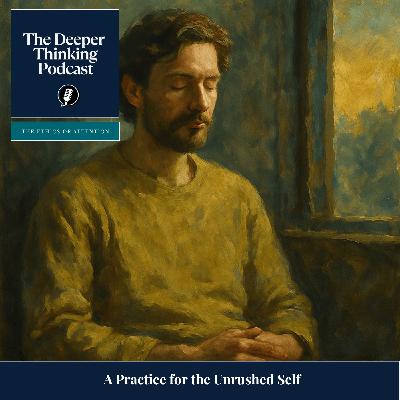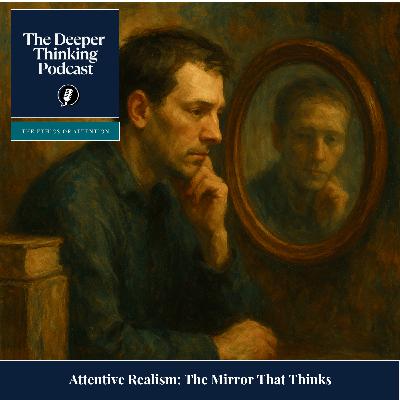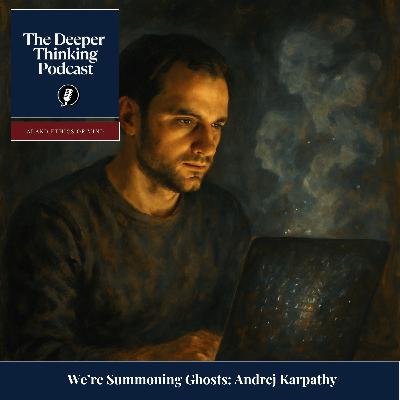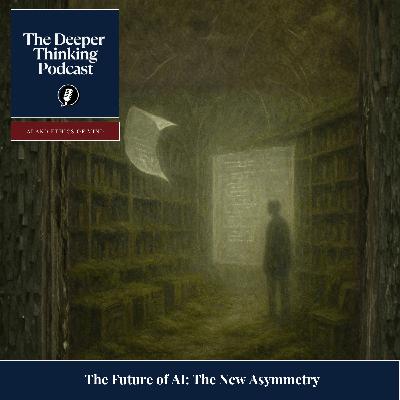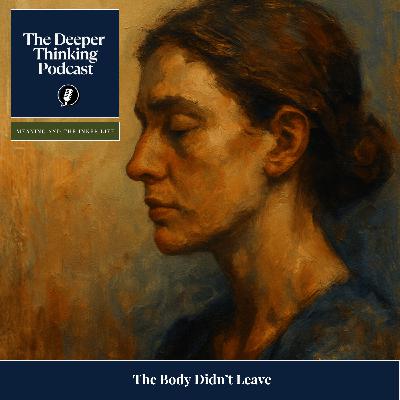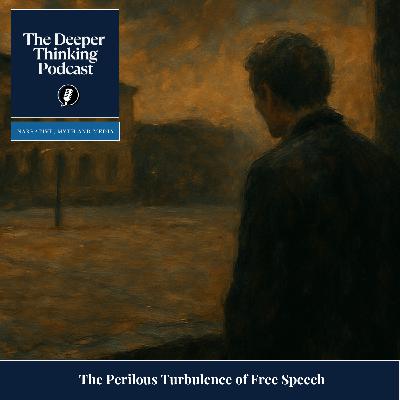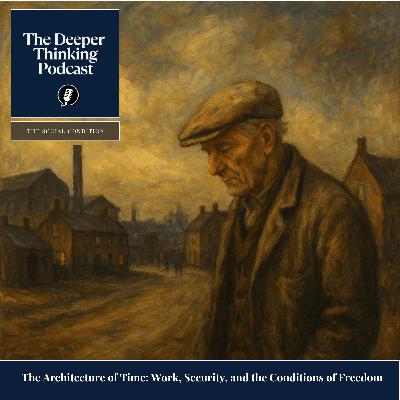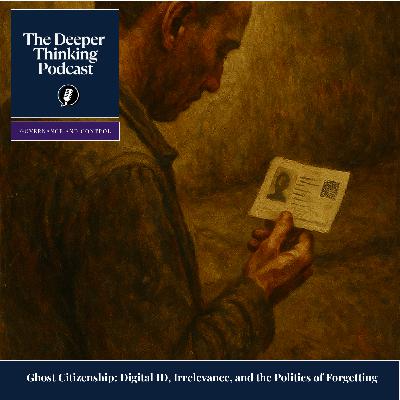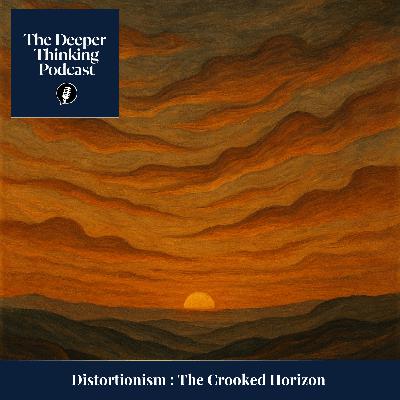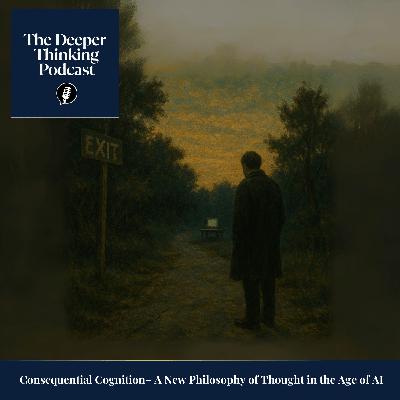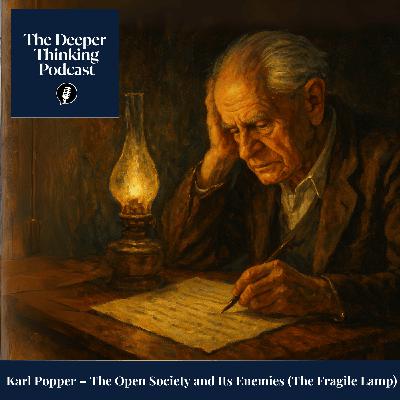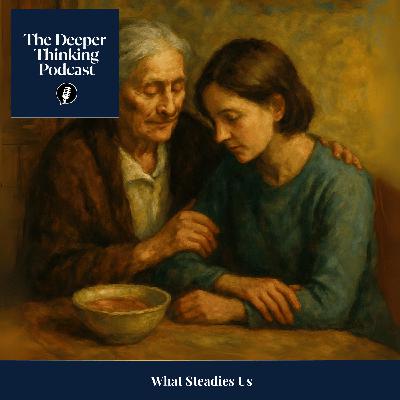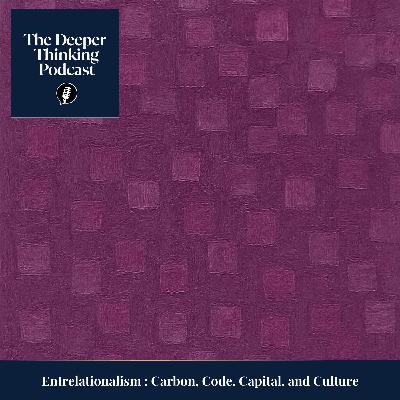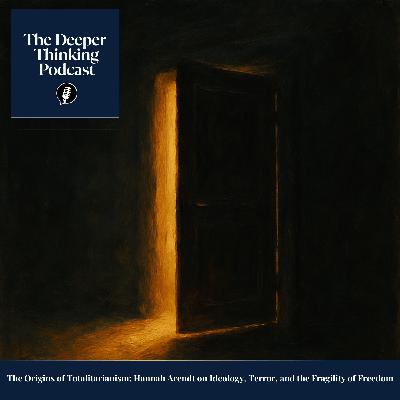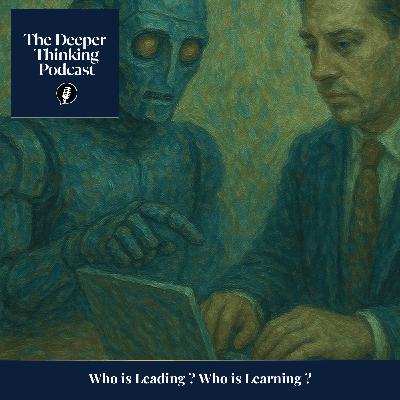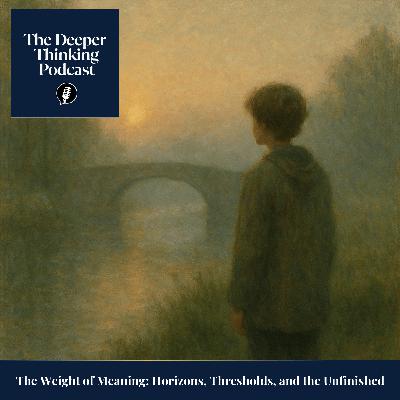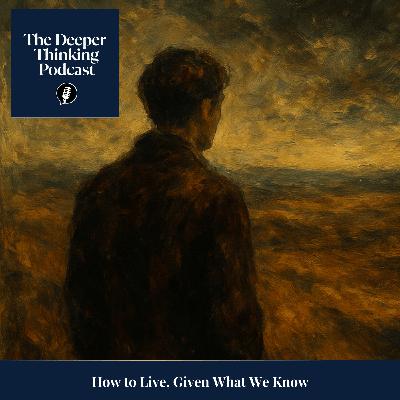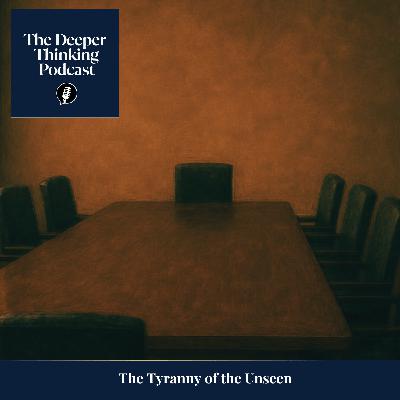The Discipline of the Unknown: Listening Carefully to Dr James Lacatski - The Deeper Thinking Podcast
Description
The Discipline of the Unknown: Listening Carefully to Dr James Lacatski
The Deeper Thinking Podcast is digitally narrated.
For listeners drawn to the ethics of interpretation, the limits of certainty, and the deep responsibility of approaching what resists explanation.
#UAP #IntelligenceAnalysis #EpistemicHumility #Phenomenology #CognitiveLimits #PhilosophyOfPerception
What does it mean to speak carefully about a subject that has been shaped by confusion, projection, and cultural noise? In this episode, we explore the testimony and intellectual posture of Defense Intelligence Agency analyst Dr James Lacatski, whose work on the United States’ UAP study program has placed him at the crossroads of science, intelligence, and the limits of human perception.
Rather than chase spectacle, we approach his statements through a lens shaped by Carl Jung, James Hillman, Hannah Arendt, and Maurice Merleau-Ponty—thinkers who emphasised the ambiguity of experience, the weight of interpretation, and the ethical demand to meet the unknown without distortion. Lacatski’s caution, restraint, and disciplined attention become a philosophical object in their own right.
Here, we consider how intelligence analysis intersects with perceptual limits, why some phenomena resist simplification, and how a culture hungry for certainty often mishandles what requires patience. This is not a story of revelation, but of the quiet integrity involved in staying within the boundaries of what can be said.
Reflections
This episode offers a meditation on how we approach the inexplicable, and how epistemic discipline becomes an ethical stance—not a limitation, but a form of care.
Here are some reflections that surfaced along the way:
- Restraint is not evasion—it is fidelity to what can be responsibly known.
- The unknown is not an emptiness to be filled, but a boundary that reveals our interpretive habits.
- Certainty can be a form of violence when applied to experiences that resist closure.
- Phenomena exceed the frames we try to force them into; humility is a methodological tool.
- Intelligence work, like philosophy, requires the patience to follow evidence without demanding conclusions.
- Ambiguity is not the enemy of truth—it is the space where understanding begins.
- Cultural noise distorts the quiet signal of genuine inquiry.
- What we fear in the unknown is often our own interpretive instability.
- The hardest discipline is learning not to overreach.
Why Listen?
- Explore how intelligence work shapes the boundaries of what can be publicly known
- Understand Lacatski’s posture of epistemic caution through Jung, Hillman, Arendt, and Merleau-Ponty
- Reflect on the difference between data, interpretation, and projection
- Consider how culture reacts to ambiguity—and how philosophy teaches us to stay with it
- Reframe UAP not as spectacle, but as a study in perception, meaning, and cognitive limits
Listen On:
Support This Work
If this episode stayed with you and you’d like to support the ongoing work, you can do so here: Buy Me a Coffee
Bibliography
- Lacatski, James. New Insights. 2024.
- Lacatski, James; Kelleher, Colm; Knapp, George. Skinwalkers at the Pentagon. 2021.
- Jung, Carl. Flying Saucers: A Modern Myth of Things Seen in the Skies. 1959.
- Hillman, James. The Dream and the Underworld. 1979.
- Merleau-Ponty, Maurice. Phenomenology of Perception. 1945.
- Arendt, Hannah. The Life of the Mind. 1978.
Bibliography Relevance
- Carl Jung: Helps us understand how culture, psyche, and symbol shape our encounters with the inexplicable.
- James Hillman: Illuminates the imaginal and the necessity of interpreting rather than flattening anomalous experiences.
- Hannah Arendt: Frames thinking as an ethical act, resisting the drift toward unexamined conclusions.
- Maurice Merleau-Ponty: Provides a phenomenological foundation for discussing perception, embodiment, and ambiguity.
- James Lacatski: Offers primary material on intelligence analysis and the limits of disclosure.
Careful thought is not refusal. It is the discipline that keeps us from mistaking our projections for the world.
#Philosophy #UAP #Intelligence #CognitiveLimits #Interpretation #EpistemicHumility #Ambiguity #Perception #TheDeeperThinkingPodcast #Phenomenology #Arendt #Jung #Hillman #MerleauPonty


